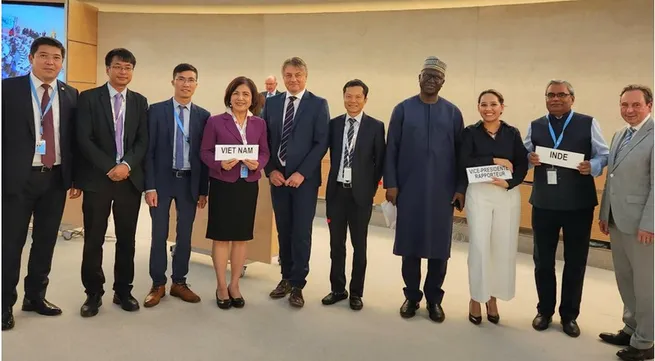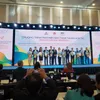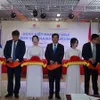Vietnam takes active part in 54th session of Human Rights Council

During the five-week 54th session, the HRC obtained numerous positive results, including adopting 37 resolutions and holding five panel discussions on unilateral coercive measures and human rights, the integration of a gender perspective throughout the work of the HRC, the rights of indigenous peoples, youth and human rights, and cyberbullying against children.
It also held discussions on 87 thematic reports, discussions and dialogues with 37 Special Procedures of the HRC and UN human rights mechanisms, along with discussions and dialogues on the human rights situations in some countries. The HRC completed procedures for approving the fourth-cycle Universal Periodic Review (UPR) reports of 14 countries, elected seven members to the HRC Advisory Committee for 2023 - 2026, and appointed 12 personnel for the HRC’s Special Procedures.
The Vietnamese delegation, led by Ambassador Le Thi Tuyet Mai, head of the Permanent Mission of Vietnam to the UN, the World Trade Organisation (WTO) and other international organisations in Geneva, chaired the drafting of and presented the joint speech on promoting the human right to vaccination. It also coordinated with Brazil and the Global Alliance for Vaccines and Immunisation (GAVI) to chair an international seminar on the promotion of the human right to vaccination.
Vietnam, which is an HRC member in the 2023 - 2025 tenure, also joined India in co-sponsoring and organising an international discussion on the 75th anniversary of the Universal Declaration on Human Rights and the 30th anniversary of the Vienna Declaration and Programme of Action. The event followed Vietnam’s initiative proposed last February on an HRC resolution on commemorating the two declarations.
In addition, the delegation also actively raised opinions at many discussions on different issues such as promoting and protecting the economic, social and cultural rights amid the settlement of inequalities during post-COVID-19 recovery, the right to development, youth and human rights, and cyberbullying against children.
In its remarks, the delegation highlighted Vietnam’s policy on promoting and protecting human rights for all, and introduced the measures the country has taken to support post-pandemic recovery, ensure social security for people, and ease the financial burden caused by the COVID-19 pandemic for vulnerable groups.
It also underlined the need to promote initiatives and actions at the national, regional, and international levels to resolve adverse impacts of such global challenges as climate change, which are threatening the enjoyment of human rights of people worldwide, especially vulnerable groups, as well as the realisation of the sustainable development goals.
Vietnam affirmed the necessity for settling political divisions and differences, and stepping up cooperation and trust building, including via the HRC’s activities to ensure people around the world can fully enjoy human rights.
Together with other ASEAN countries, the Vietnamese delegation also delivered some joint speeches on the issues of the bloc’s concern such as technical cooperation and capacity building, and the integration of gender equality into the work of the HRC and UPR.
During the 54th session, Vietnam actively met and talked to other countries’ delegations, joined in the drafting of documents, and co-sponsored many initiatives in the spirit of dialogue and cooperation, thereby reflecting its consistent viewpoint, policy, and achievements in human rights promotion and protection and helping ensure the HRC’s activities are in line with the fundamental principles of international law.





